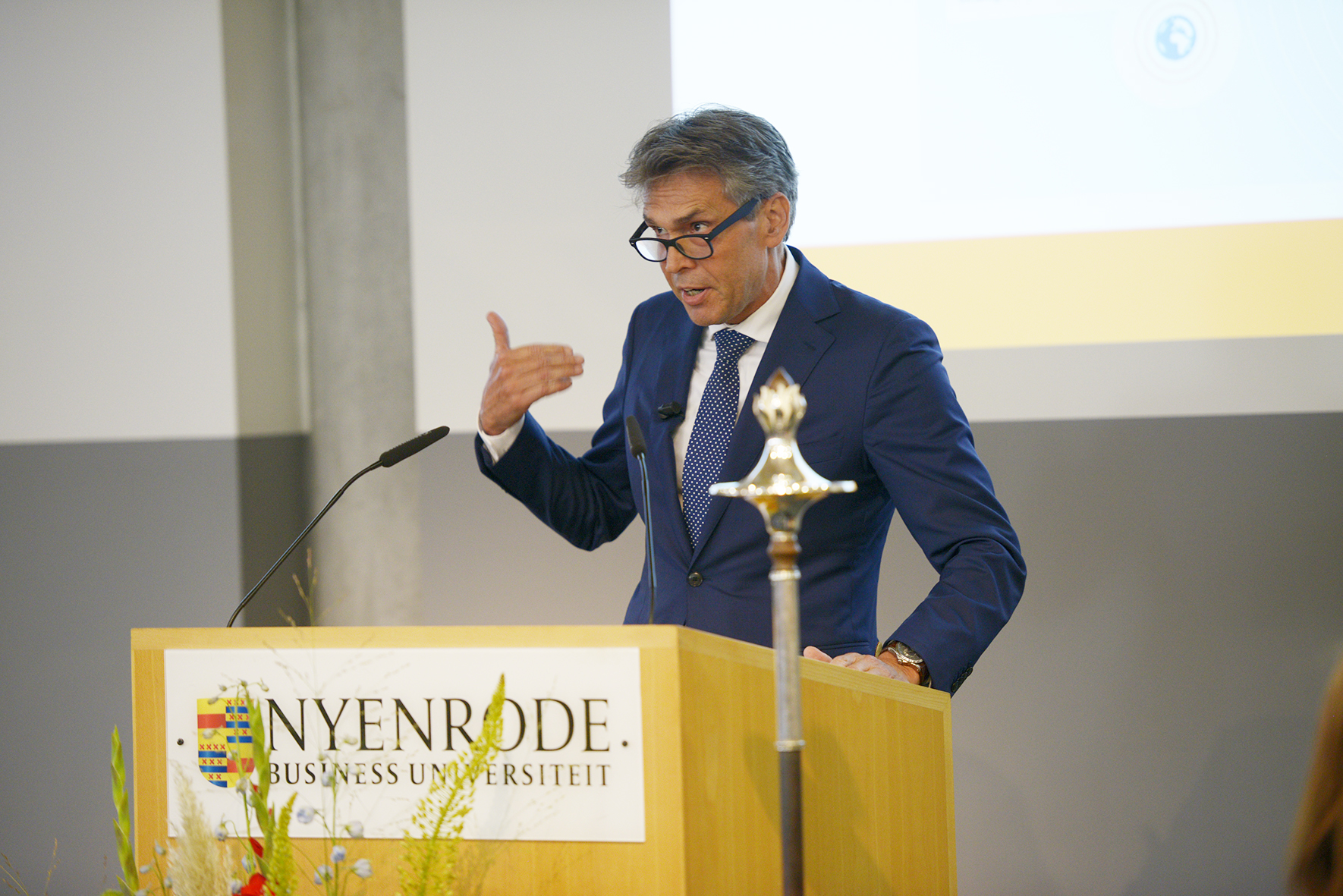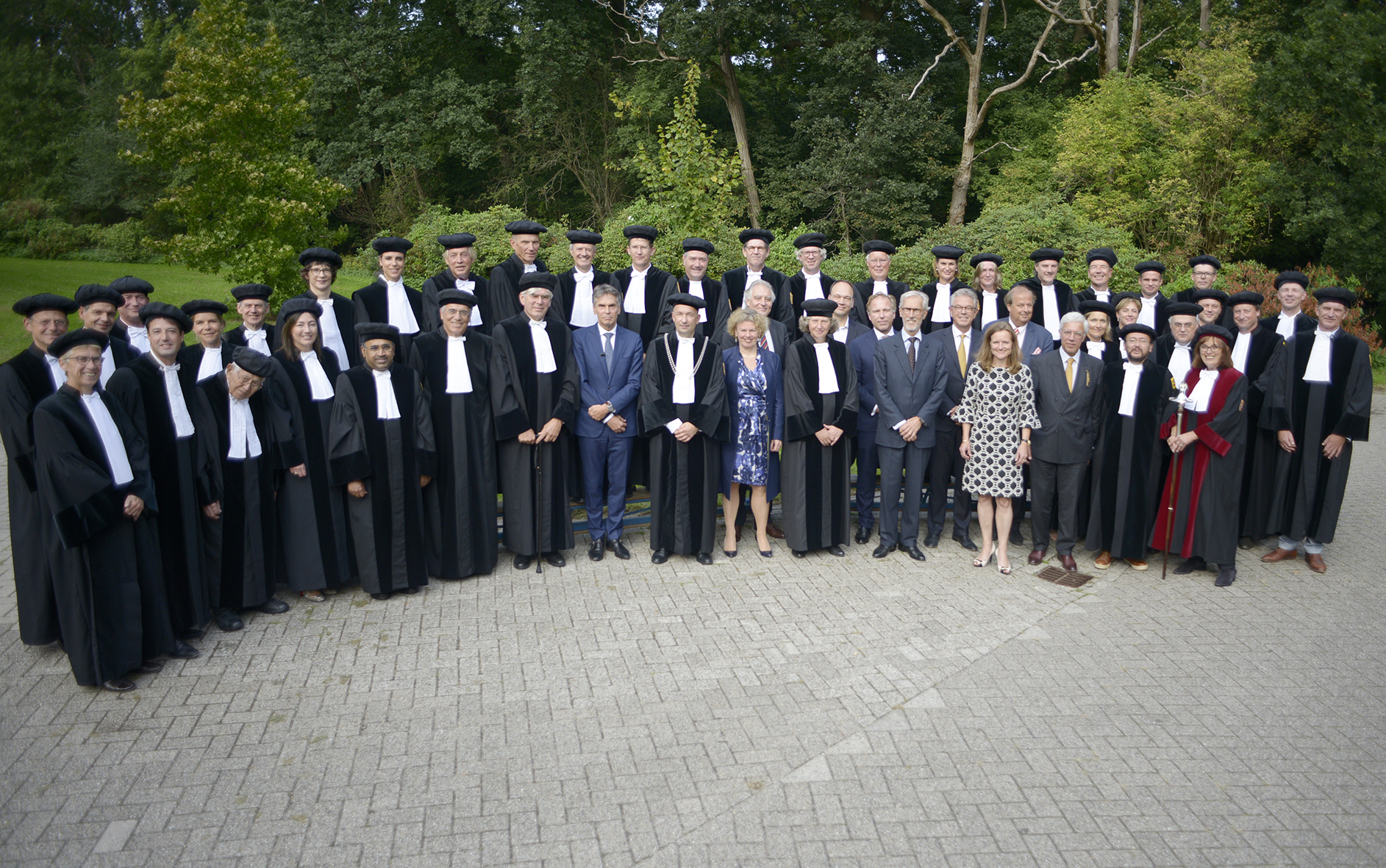The digital economy is growing rapidly, and increasing along with it are cyber crime, cyber spying and (online) influence via social media, such as on Facebook during the presidential elections in the United States. “The ongoing digital threat, and how we defend ourselves against it, is an issue that affects us all,” explains Dick Schoof, National Coordinator for Counterterrorism and Security. Today he held the keynote speech titled “Cyber security: A never-ending race” during the opening of the academic year at Nyenrode Business Universiteit.

Everyone is part of the threat
Schoof discussed the developments surrounding the digital threat with an audience of faculty members, students, employees and other invited guests. “That will never happen to me, only to other people” is a common belief. However, research shows that 50% of people worry about their digital safety, while only 20% actually take action. One in five people still use Wi-Fi without a password, and two-thirds of organizations have been affected by cyber crime or spying without their knowledge. “Clearly it does not just affect ‘other people’, but us as well. We are therefore part of the threat and it is time for continuous action”, Schoof says.
The Netherlands: a cyber country
The Netherlands is a cyber country. Our physical borders are fading as a result of international trade, and our economy and society are becoming increasingly dependent on digital assets. In turn, cyber crime, cyber spying and (online) influence are also on the rise. According to the 2018 Netherlands Cyber Security Assessment published by the NCTV, cyber attacks are profitable and easy for attackers to carry out with little risk. Such attacks are therefore expected to occur on a larger scale in the near future. Last year, the Rotterdam Harbor was hit by a cyber attack with ransomware. The cost of this attack: €300 million. The total damage from cyber attacks in the Netherlands amounts to between €9 billion and €10 billion each year, and this number will continue to rise.
Collaboration is essential
Schoof states “that we are all part of the threat AND part of the solution. But to keep the Netherlands safe, we have to stay one step ahead of crime.” Achieving this will require collaboration between the government, all sectors of the business community and academia, on both a national and international level. The National Coordinator for Counterterrorism and Security plays a key role in achieving this and has therefore drafted the Netherlands Cyber Security Agenda. The agenda lists seven ambitions, which are translated into concrete actions against cyber threats.
Schoof highlights ambition number 6: “The Netherlands is a leader in the area of cyber security knowledge development.” It is important that we maintain and further enhance enough high-caliber cyber security knowledge in the Netherlands. This includes knowledge of current digital threats as well as new ones, in both the short and long term. Because our digital economy is growing so quickly, however, we now have a shortage of IT professionals and experts in the field of cyber security.
Take action
It is not only the experts who should take action. We should do the same. Since we are all connected via our digital world, we can all be affected by cyber attacks, too. Schoof advised attendees to be aware of the digital threat, and to adjust their online behavior accordingly. This means not using Wi-Fi without a password and asking for help if you need it. Various organizations have been set up to assist in this regard. The National Cyber Security Center www.ncsc.nl, for instance, offers 10 tips for a safer Internet, and the AIVD www.aivd.nl provides information about cyber spying.

The module "AI & Cyber: Threats and Opportunities", which is part of the Business & IT track of the Modular Executive MBA, will begin at Nyenrode in March 2019. More information is available on www.nyenrode.nl.
